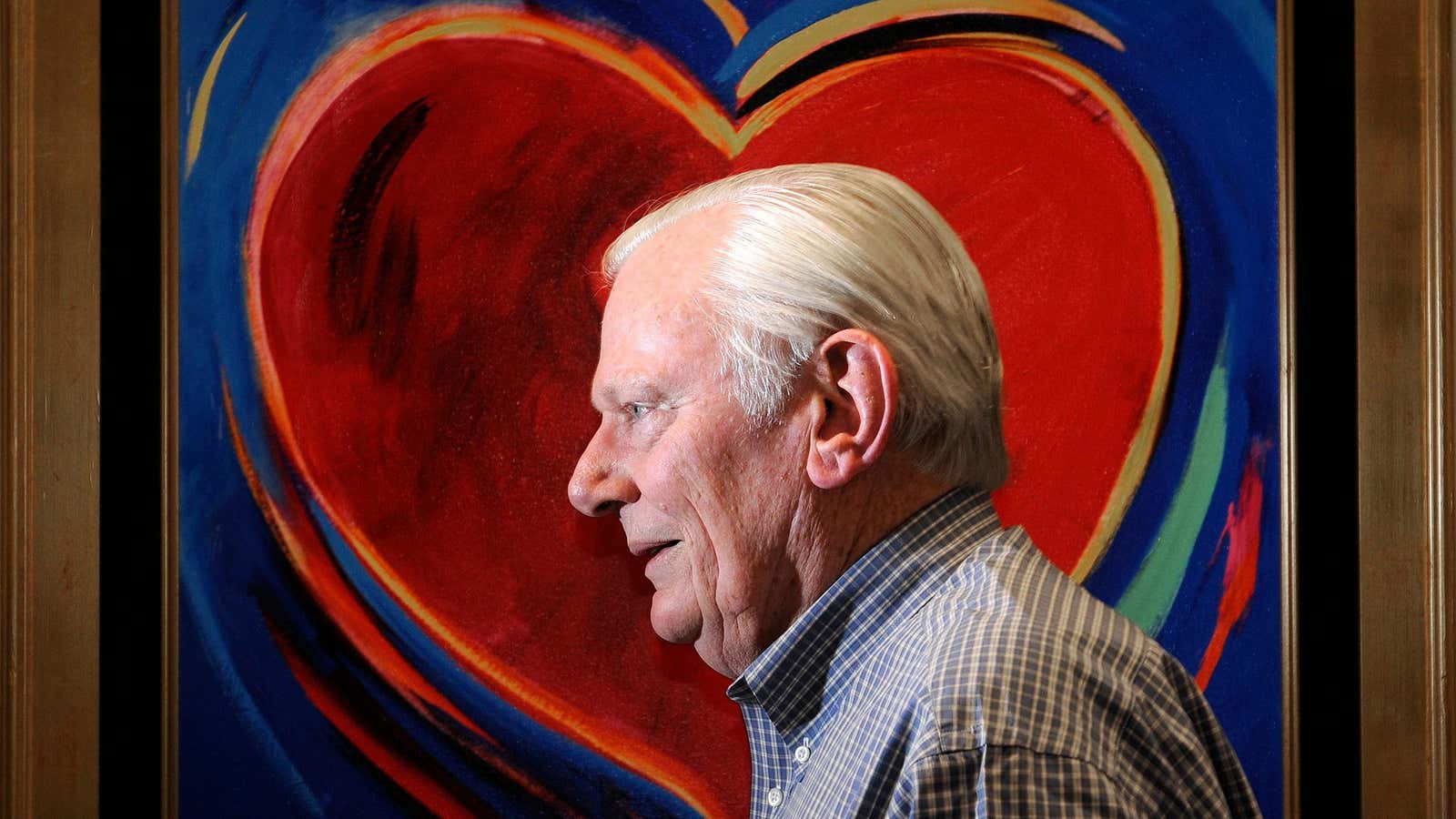Larry Fink’s 2019 “Dear CEO” letter just hit the press—and the airplane reading file for global elites heading off to Switzerland for the World Economic Forum. The Blackrock letter is a required download for the Davos set. Fink vigorously attacks the very issues that make up the WEF agenda—and he writes at a moment that feels both economically rocky and socially perilous in Washington, London, Paris, and around the globe. Fink doesn’t mince his words:
“Market uncertainty is pervasive, and confidence is deteriorating. Many see increased risk of a cyclical downturn. Around the world, frustration with years of stagnant wages, the effect of technology on jobs, and uncertainty about the future have fueled popular anger, nationalism, and xenophobia.”
Fink also writes about the resulting “political dysfunction,” and reminds CEOs that “the world needs your leadership.” But he isn’t exactly asking them to call their elected officials, as important as that might seem as the US government shutdown persists and the UK Parliament teeters on the brink of Brexit. He’s talking directly to the CEOs of the world’s largest companies about the purpose of their own enterprise—asking again, what we, the public, can expect in return for granting companies the license to operate.
Fink reminds his readers that this moment requires much more from them. If we are going to have any hope of addressing widespread discontent [“popular anger, nationalism, and xenophobia”] we will need more than lofty language from the C-suite. Business leaders also need to be able to answer this question: What does it look like when a company sets a direction that creates social value—i.e. defines its public purpose—and then, truly lives by it?
Enter the example of Southwest Airlines.
I don’t know how Larry Fink responds when asked for specific examples of companies that live up to his vision of purposeful business. As the world’s largest investor, he may need to dodge the question. I don’t.
When I get a call from journalists writing about corporate responsibility—it often begins with, “Who do you have besides Unilever?”—the answer is always the same. A great place to start is Southwest Airlines, founded by Herb Kelleher, who passed away this month at the age of 87.
I never met Kelleher, but the stories of people who did now populate the web. (Here’s my favorite from Bill Taylor, founder of Fast Company.) When I am asked for case examples to illustrate the story of business as agent of public benefit, of companies that take business purpose seriously, I answer Southwest, followed by half a dozen companies that have been so consistent at living by the employee- and community-friendly values Fink extols that they almost fade from view.
Southwest, as Kelleher envisioned it, and then managed it for two decades, was an exemplar of behaviors that both Fink and US senator Elizabeth Warren advocate. Kelleher designed a business model that placed both employees (profit sharing, respect, dignity) and customers (low fares, clean planes, no stupid fees) at the center of the company’s purpose. Shareholders were not the organizing principle, yet the early investors who stuck around were handsomely rewarded; Southwest, with its labor-friendly practices, is the most financially successful US airline in history. With a 45-year track record, we see a company that has been run exceptionally well over the long term, with the kind of long-term focus Blackrock commends.
Southwest is a case example for Fink’s call for a long-term plan—and illustrates well his statement that profits are in no way inconsistent with purpose, and that in fact, profits and purpose are inextricably linked.
By all accounts, Kelleher was the real deal, and Southwest is the proverbial business case for professors testing whether high-road employment practices can earn a decent, or even superior, ROI. The qualities we admire most about Southwest also produce the financial performance that matters most: consistent profits and cash flow over the long haul.
Purpose lives in the decisions, operational protocols, and investments made each day. We know the good actors. They are the ones who pay it forward rather than dodge taxes, who avoid externalizing costs on to suppliers, and who treat employees as an investment rather than a cost. In recent weeks, Steven Pearlstein of The Washington Post and David Brooks of The New York Times (and of the Aspen Institute) have illuminated some of these business practices as questions of morality. They remind us that the language of purpose matters—but that behavior matters most.
A corporate purpose develops meaning when backed up by useful measures of corporate health—like employee engagement and consumer loyalty—but especially by business priorities, be it investing in a profit-sharing plan like Delta’s, or achieving internal pay equity like Salesforce has committed to, or structuring jobs and securing contractors that offer sufficient financial security to pay the rent and save something for the future.
Public companies under shareholder pressure have a particular challenge, which brings us back to Fink’s (and Blackrock’s) promise in his letter a year ago, to back up companies that articulate their public purpose and then live by it—i.e. with clear focus on the employees, as well as protocols for contract labor, the environment, and the communities that make it possible for business to thrive.
As our business leaders descend on Davos, it’s useful to remember that “purpose,” like sustainability or corporate responsibility, is not an end state. The best leaders are on a journey—one that is not always clearly marked but is seen in the kind of questions they ask, how they spend their time, and the beliefs that guide their decisions and investments. Kelleher wasn’t trying to save the world, but he conducted his business with a simple purpose—to make flying affordable for the masses and fun for the crew. In doing so, he transformed an industry and the lives of his customers and his employees.
